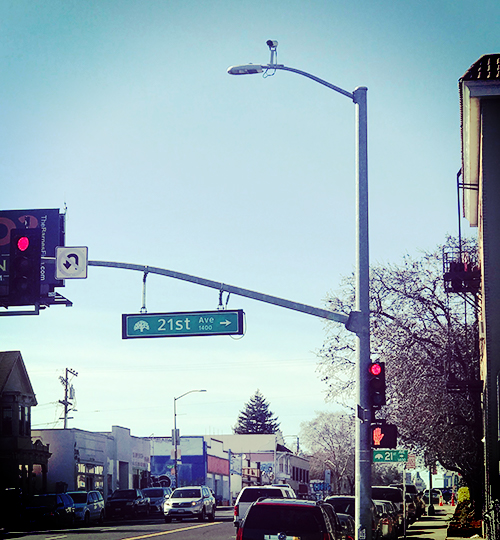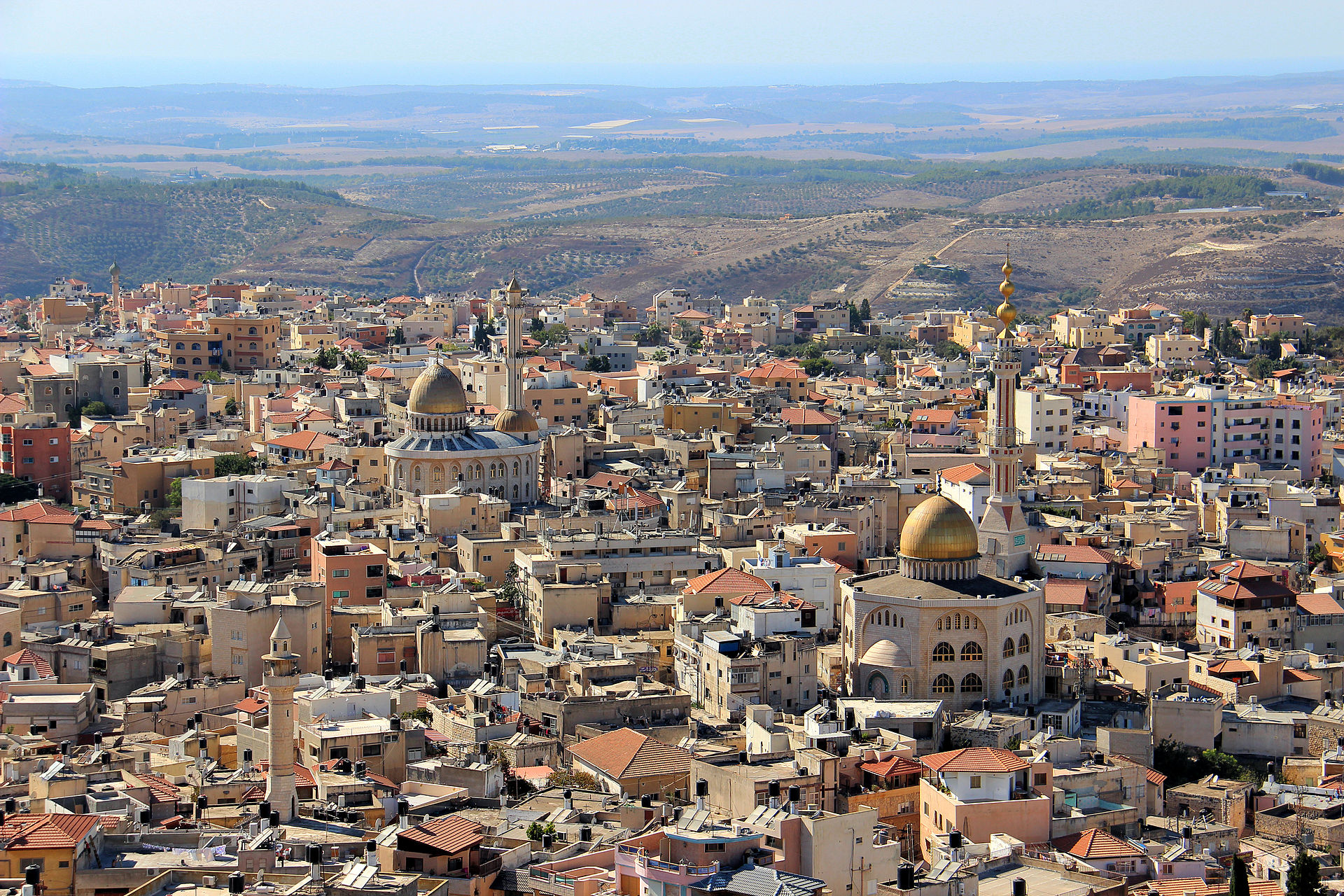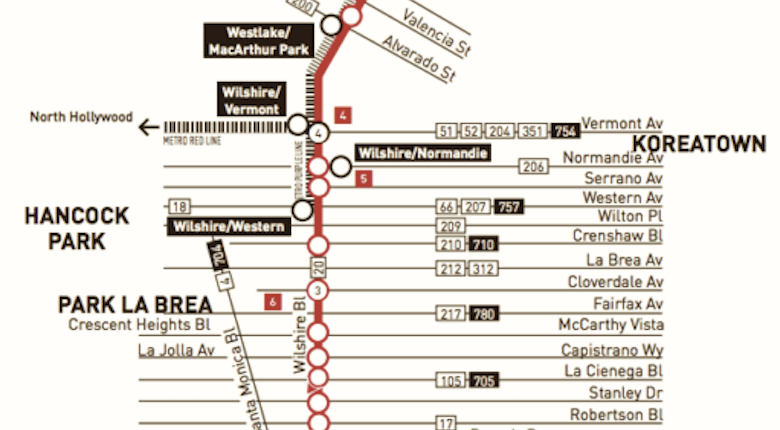By Sabrine Azraq
Published on December 8, 2014
[caption id="attachment_757" align="aligncenter" width="365"] Drawing by Lana Shaheen[/caption]
What is home?
I’ve asked this question to family members, friends, and strangers at the bus stop. The same response is always given: home is anywhere where one feels comfort, security, and familiarity. I am fed the notion that home is just a feeling. I find, however, that I just can’t bring myself to swallow this idea.
[caption id="attachment_690" align="alignright" width="200"]
Drawing by Lana Shaheen[/caption]
What is home?
I’ve asked this question to family members, friends, and strangers at the bus stop. The same response is always given: home is anywhere where one feels comfort, security, and familiarity. I am fed the notion that home is just a feeling. I find, however, that I just can’t bring myself to swallow this idea.
[caption id="attachment_690" align="alignright" width="200"] Drawing by Lana Shaheen[/caption]
Consider this: if a woman has developed comfort, security, and familiarity in a house she stole, should one be concerned about her calling it home? If that woman later gave birth to children who developed similar feelings, is there a problem in them calling this stolen home their home? This may sound absurd, but for Indigenous peoples with lived experiences engrossed in colonization, theft of their home is a reality.
As an indigenous person of Palestine and a settler in present-day “Canada,” my right to home is denied while I actively deny others of theirs. Identifying home is much more than feelings. Ideas of home are used to normalize colonization and alienate the oppressed. Home becomes the legitimizing basis for the lived realities I am forced to endure as a Palestinian and the justifying measure for my presence as a settler on stolen land.
This is precisely why the idea of home fills me with so many conflicting and hidden emotions. I find myself simultaneously trapped and freed each time I attempt to confront it. Despite being born and only having ever lived in “Canada,” I don’t think I can ever bring myself to call this country my home. My feelings of comfort do not legitimize my participation in this settler society.
The word “Canada,” actually, comes from the word Kanata, which means “settlement” in the language of the Wendat. Canada is a landmass erased of its originality and violently renamed “Settlement” in the language of the people they ethnically cleansed. Millions of Indigenous people were killed for the purpose of creating feelings of comfort, security, and familiarity for European settlers. And today, while we continue feeling at home on colonized land, over a million Indigenous people are forced into deplorable isolation.
The “Canadian” government, moreover, is a very close friend of Israel, a country currently destroying my own existence. Israel was created by Zionism, which is a political ideology that aimed to free the Jewish population facing European anti-Semitism by creating a Jewish homeland in Palestine. As a result, my home is currently colonized, occupied, and reconstructed into a home for another people. And my taxes in Canada are currently going to a government that unconditionally supports the violent erasure of my existence.
[caption id="attachment_689" align="aligncenter" width="300"]
Drawing by Lana Shaheen[/caption]
Consider this: if a woman has developed comfort, security, and familiarity in a house she stole, should one be concerned about her calling it home? If that woman later gave birth to children who developed similar feelings, is there a problem in them calling this stolen home their home? This may sound absurd, but for Indigenous peoples with lived experiences engrossed in colonization, theft of their home is a reality.
As an indigenous person of Palestine and a settler in present-day “Canada,” my right to home is denied while I actively deny others of theirs. Identifying home is much more than feelings. Ideas of home are used to normalize colonization and alienate the oppressed. Home becomes the legitimizing basis for the lived realities I am forced to endure as a Palestinian and the justifying measure for my presence as a settler on stolen land.
This is precisely why the idea of home fills me with so many conflicting and hidden emotions. I find myself simultaneously trapped and freed each time I attempt to confront it. Despite being born and only having ever lived in “Canada,” I don’t think I can ever bring myself to call this country my home. My feelings of comfort do not legitimize my participation in this settler society.
The word “Canada,” actually, comes from the word Kanata, which means “settlement” in the language of the Wendat. Canada is a landmass erased of its originality and violently renamed “Settlement” in the language of the people they ethnically cleansed. Millions of Indigenous people were killed for the purpose of creating feelings of comfort, security, and familiarity for European settlers. And today, while we continue feeling at home on colonized land, over a million Indigenous people are forced into deplorable isolation.
The “Canadian” government, moreover, is a very close friend of Israel, a country currently destroying my own existence. Israel was created by Zionism, which is a political ideology that aimed to free the Jewish population facing European anti-Semitism by creating a Jewish homeland in Palestine. As a result, my home is currently colonized, occupied, and reconstructed into a home for another people. And my taxes in Canada are currently going to a government that unconditionally supports the violent erasure of my existence.
[caption id="attachment_689" align="aligncenter" width="300"] Drawing by Lana Shaheen[/caption]
There are roughly 120 illegal Israeli settlements in Palestine. Within these settlements lie roughly half a million illegal Israeli settlers who feel comfort, security, and familiarity in my home. Although these settlements are illegal under international law and not a single country (other than present-day Israel, of course) recognizes their existence, Israel has neither dismantled them nor ceased construction. Instead, these settlements continue to expand, creating more space for foreigners to feel comfort and security, while Palestinians feel alienated and dehumanized.
Can you see why I find it so problematic to assert the notion that feeling at home can legitimize one’s claim to home? Can you see how traumatic this very idea is to colonized peoples? Only specific groups of people are given the privilege to feel comfort, security, and familiarity, while others are not.
I’ve come to the conclusion that home is a claim, one that is often beautifully conceptualized and violently actualized. By relearning home, I acknowledge my place as both the colonizer and the colonized. In the end, I call Palestine my home while recognizing my occupier’s refusal to recognize me. I call Palestine my home albeit international idleness in the midst of its destruction. I call Palestine my home with contempt of the apartheid and oppression I face within it. I refuse to internalize this oppression and to inflict it on others. I have decolonized my perception of home and I strongly urge you to do the same.
Drawing by Lana Shaheen[/caption]
There are roughly 120 illegal Israeli settlements in Palestine. Within these settlements lie roughly half a million illegal Israeli settlers who feel comfort, security, and familiarity in my home. Although these settlements are illegal under international law and not a single country (other than present-day Israel, of course) recognizes their existence, Israel has neither dismantled them nor ceased construction. Instead, these settlements continue to expand, creating more space for foreigners to feel comfort and security, while Palestinians feel alienated and dehumanized.
Can you see why I find it so problematic to assert the notion that feeling at home can legitimize one’s claim to home? Can you see how traumatic this very idea is to colonized peoples? Only specific groups of people are given the privilege to feel comfort, security, and familiarity, while others are not.
I’ve come to the conclusion that home is a claim, one that is often beautifully conceptualized and violently actualized. By relearning home, I acknowledge my place as both the colonizer and the colonized. In the end, I call Palestine my home while recognizing my occupier’s refusal to recognize me. I call Palestine my home albeit international idleness in the midst of its destruction. I call Palestine my home with contempt of the apartheid and oppression I face within it. I refuse to internalize this oppression and to inflict it on others. I have decolonized my perception of home and I strongly urge you to do the same.
Sabrine Azraq is a Palestinian Muslim Womyn and VP of Equity at the Scarborough Campus Students’ Union. She enjoys dismantling inequitable systems. She also enjoys weaponizing Love as a method of piercing through this colonial and patriarchal world. In her spare time she sleeps.
Further reading and viewing suggestions
- Daswani, Girish. 2014. “Where Are You From Really?” TEDxUTSC video, 17:30.
- Freeman, Victoria. 2010. “‘Toronto Has No History!’ Indigeneity, Settler Colonialism, and Historical Memory in Canada’s Largest City.” Urban History Review 38 (2): 21-36.
- Mason, Victoria. 2007. “Children Of The “Idea Of Palestine”: Negotiating Identity, Belonging And Home In The Palestinian Diaspora.” Journal of Intercultural Studies 28 (3): 271-85.
- Veracini, Lorenzo. 2013. “The Other Shift: Settler Colonialism, Israel, and the Occupation.” Journal of Palestine Studies 42 (2): 26-42.



The feeling of being a settler on stolen aboriginal land is… unsettling. Does calling Canada home make me complicit to land theft and systematic violence towards indigenous peoples? Even though Israel tries to erase the traces of Palestine and exile Palestinians from their home, remnants of these traces will always be present. Similarly, when Prime Minister Harper makes statements like Canada has “no history of colonialism” or that missing, murdered aboriginal women “isn’t really high on our radar,” we must resist the ways in which our government attempts to erase indigenous traces from the Canadian context. We must ‘decolonize our perception of home,’ as Sabrine wrote.
I grew up with this one-sided view of Canada being a bastion of cultural diversity and acceptance. But as I have become more exposed to the ugly reality of Canada’s colonial history and the ongoing consequences of such injustices towards its indigenous population, I cannot help but feel ashamed. I am torn between respecting the country that gave me “a home” and actively acknowledging the fact that this same country stole the rightful land of others. I am still in the process of “decolonizing [my] perception of home.” It is tough, but pieces like this show me that it is necessary if we are to move forward with a more realistic, less sugar-coated understanding of Canada.
Thank you for your honest reflection on our “home” here in Canada. So much has happened on the lands we currently occupy. I can’t even begin to fathom the oppression felt by those in Palestine, the Aboriginals and other displaced people throughout the world. In Canada it’s so easy to forget our complicity in the very system from which we benefit from, at the expense of others. Recognizing is a wonderful first step. I wonder how we can move forward from this. Granted, nothing we can do will ever undue the injustices of the past but perhaps there is something our generation can initiate to begin the process of healing.
I found this article to be extremely interesting and thought provoking. While all Canadians are aware of the colonization that occurred in Canada we tend to overlook it and still call Canada home. However, this article sheds light on the violent truth, that what we call our home is land that was stolen from the Aboriginals. History is being repeated in Palestine, and once again the world seems to do nothing about it. For Canadian citizens who feel as if they are occupying stolen land, standing up for the people of Palestine can be a way to do right, and prevent this from happening again.
This story was interesting and thought provoking. When one thinks about the home, it is associated with sense of place but instead, Sabrine relates it to colonialism. Sabrine’s story reminds me of a course I had taken (GGRD19). Her story relates to two points that we had discussed. First, Canada is not “multicultural” as we believe it is and second, to move forward in mixed-race theory, we cannot ignore the past, which includes the history of colonialism. Although I do not agree with Sabrine’s argument that I myself am claiming someone else’s land, I do agree that we have to acknowledge colonialism (in Canada).
This piece is extremely well written and intriguing. I remember it from the 2nd anniversary of the “On the Move” launch last year and it resonated with me. It reminds me that it is important to be critical and see the bigger picture when we consider what is home and the history of (settlers in) Canada. The issue of communities being displaced due to political/religious turmoil is often overlooked. As the author mentions most recently, the settling of Israelis in Palestine was heavily discussed in the news in 2014. However, I have not heard much about it since. The author reminds me that we need to be aware of and thoroughly comprehend such issues and not let them be swept under a rug.
I can understand how you feel about your homeland. I like the way you have dealt with the problem, especially your idea of being both the colonizer and the colonized. I agree that it is not a good idea to internalize oppression and then externalize it once again in a different time and place. I also like your suggestion of “decolonizing” the perception of home. I would ask if there is something practical that we can do to make that a reality in our lives in Canada and I would appreciate any suggestions that others might have.
I was very impressed by the way the author laid down her thoughts. I would usually agree with the notion that home is where you have always been, where you feel a sense of belonging, but this story made me think that even if you do belong somewhere it doesn’t necessarily make it home for you. Home is indeed where the heart is, and as a person who was deprived of her rights to experience life on the land of her ancestors and origins, I understand why it will always remain in your heart. I am an Arab and so my heart goes out for Palestine and all the other Arabic countries that are being broken into pieces due to corrupt governments and foreign schemes.
I’m sincerely sorry to hear in writing your experiences that you associate with the notion of home. Nobody earns the right to go through that. That being said, I find myself being in agreement with what other people would say about home. It’s not just limited to a building strategically situated and conformed to state laws; but a place where one feels at peace, learn and grow as a person, and to journey with people they would meet there. To some, for example, because of the people they meet in spite of the stress, they would find home at school.
This article really makes me think about how the notions of security and belonging has driven societies to exclude groups of people and alienate them to create their safe haven or what they call “home”. Considering a sense of home as something built on what was snatched from someone else really complicates the meanings associated with the word, “home.” Even if the Prime Minister of Canada tried to deny the traces of colonialism, their existence however still remains. They persist in the minds and hearts of people who have been terrorized and tortured. I think that when proudly claiming Canada or Israel as home, one must consciously acknowledge the historical and ongoing colonial traces of the land, and constantly question who gets to claim the place as their home.
Wow! This article was extremely informative and thought-provoking. For someone like myself who is involved in helping syrian refugees through #freepalestine organizations and initiatives, this piece seemed very fitting. You bring forth a perspective on the voices that are often silenced. Thank you so much for this piece and I will definitely recommend this to my peers and colleagues!